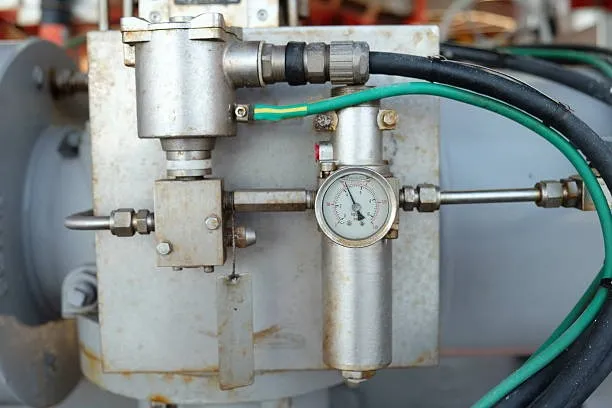
Boiler Tune-Up in Shrewsbury, PA
Keeping your boiler running safely and efficiently is essential in Shrewsbury’s cold winters and older housing stock. A professional boiler tune-up ensures reliable heat, lowers the risk of midseason breakdowns, and helps your system run more efficiently through freeze-prone months.
Why a boiler tune-up matters in Shrewsbury, PA
Shrewsbury experiences cold winters and freeze-thaw cycles that stress boilers and associated piping. Many homes in the area have older hydronic (hot water) or steam systems that benefit most from preventative maintenance. Regular tune-ups reduce safety risks (carbon monoxide, combustible fuel issues), prevent costly emergency repairs in the coldest months, and maintain even, comfortable heat across multiple zones or radiators.
Common boiler types and issues we see locally
- Hot water (hydronic) boilers — common in older Shrewsbury homes; issues include circulator pump failure, low pressure, and corroded piping.
- Steam boilers — prone to water level and pressure problems, noisy operation, and radiator balancing needs.
- High-efficiency condensing boilers — require condensate trap cleaning and burner checks; sensitive to scale and venting problems.
- Oil-fired and gas-fired systems — ignition, pilot assembly, and burner cleanliness are frequent focus points.
Typical local problems include uneven room temperatures, increased fuel bills after a few cold snaps, pilot outages, and chilly basements or additions that indicate zoning or circulation faults.
What a complete boiler tune-up includes
A thorough tune-up is more than a visual check. For Shrewsbury homes, a complete service covers safety, combustion performance, controls, and efficiency optimization:
- Ignition and pilot system checks
- Inspect and test electronic ignition or pilot assemblies
- Clean and adjust burners and electrodes for reliable ignition
- Verify flame quality and flame sensing controls
- Combustion and venting inspection
- Visual flue and chimney inspection for blockages, corrosion, or improper draft
- Combustion analysis (where applicable) to check fuel-to-air ratios and CO levels
- Verify vent termination and clearances for safe exhaust
- Pressure, water level, and thermostat calibration
- Check and adjust system pressure and expansion tank condition
- Confirm proper water level (steam boilers) and automatic feed operation
- Calibrate thermostats and zone controls for accurate setpoint compliance
- Circulator pumps and valves
- Inspect circulator pump operation and bearings
- Check zone valves and motorized valve sequencing
- Lubricate moving parts where applicable
- Efficiency optimization
- Clean burners, combustion chamber, and heat exchanger surfaces to improve heat transfer
- Remove scale or sediment from low-water cutoffs and strainers
- Adjust fuel/air mixture; reconfigure sequences for multi-boiler or multi-zone setups
- Safety and control checks
- Test safety controls, high-limit and low-water cutoffs, pressure relief valves
- Verify operation of timers, frost protection, and emergency shutdown systems
- General housekeeping
- Inspect for leaks, corrosion, or signs of past water damage
- Replace or advise on filters, strainers, or fuel nozzles as needed
- Provide maintenance notes and an itemized record of findings
The tune-up process: what to expect during a visit
Technicians begin with a system history and a brief visual inspection, then move to operational testing while the boiler runs. Expect combustion and safety tests, adjustments to controls, and functional checks of pumps and zones. When problems are found, technicians explain the issue and recommend repairs or parts replacements. Most tune-ups also include a written checklist of completed tasks and observations for your records.
Typical duration and what affects service time
- Standard residential tune-up: about 60 to 90 minutes for a single, well-maintained boiler.
- Older systems, multi-zone setups, or boilers requiring detailed combustion testing and cleaning may take 2 hours or more.Factors that lengthen a visit include extensive soot buildup, restricted access, failed components discovered during inspection, or the need to perform system flushing or more in-depth repairs.
Expected performance improvements
After a professional tune-up you can typically expect:
- More consistent heat distribution across rooms and radiators
- Quieter operation with fewer short-cycling events
- Improved fuel efficiency, often noticeable in reduced fuel consumption or steadier thermostat performance
- Lower risk of midwinter breakdowns and fewer emergency service calls
- Extended equipment life by reducing corrosion, soot, and stress on controls and pumps
Exact efficiency gains depend on your system’s age and condition; well-maintained boilers show the greatest returns from routine tune-ups.
Recommended intervals for Shrewsbury homes
- Annually, before the heating season — a yearly tune-up is the standard recommendation for most residential boilers in Shrewsbury.
- Twice yearly may be recommended for high-use systems, older boilers, or properties with seasonal vacancy.Regular annual service ensures the system is ready for prolonged cold periods and helps catch developing issues early.
Signs your boiler needs a tune-up now
Watch for these common indicators that it’s time for professional attention:
- Uneven heating from room to room or cold radiators
- Unusual noises: banging, clanking, gurgling, or persistent cycling
- Increased fuel usage without a change in thermostat settings
- Pilot outages, ignition failure, or difficulty restarting
- Visible leaks, rust, or water staining near the boiler
- Frequent tripping of safety controls or low-water cutoffs
- Noticeable smell of gas (shut off at the source and address immediately as an emergency)
Maintenance tips to prolong tune-up benefits
- Bleed radiators and purge air from zones after winter startup
- Keep the boiler room clear of clutter and combustible materials
- Check and replace any simple filters or strainers on schedule
- Monitor system pressure monthly and note any progressive drops
- Schedule annual professional inspections before the heating season begins


Enjoy flexible financing options that make upgrading or repairing your HVAC system easy and budget-friendly.










